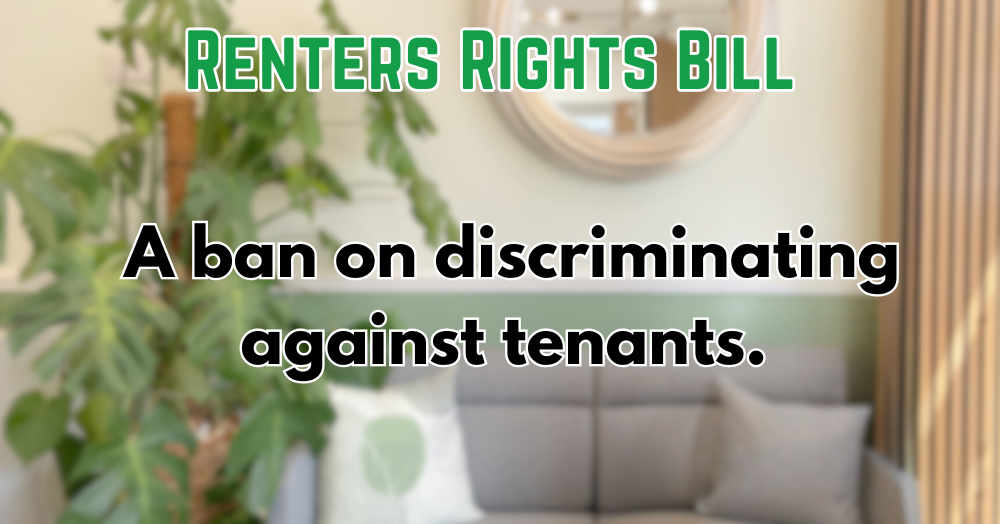
The Renters Rights Bill - A ban on discriminating against tenants on benefits or with children⚠️
The renters rights bill will make it illegal for landlords and agents to discriminate against prospective tenants in receipt of benefits or those with children, but what about the terms of a Landlords mortgage or superior landlord agreement?
The Renters Rights Bill plans to address rental discrimination practices where landlords or their agents use direct or indirect practices to prevent someone from entering into a tenancy such as No DSS, No Benefits, No Children.
Whilst landlords will have the final say on who they wish to let their property to and the referencing to ensure tenancies are sustainable for all parties, they will be able to decline a tenancy on the basis of affordability but not on the basis that the prospective tenant may have children or be in receipt of benefits.
Properties must be suitable for the occupancy of the tenants and a tenancy could be declined on this basis.
The government states that measures in the Renters Rights Bill ensure that terms in mortgages and superior agreements which restrict the letting of a property to private renters without children or who receive benefits are of no effect, preventing any breach of contract where a landlord fails to fulfil them. Therefore, a landlord cannot be compelled to discriminate by their mortgage or superior landlord agreement. Here's what it means in simpler terms:
Previous Restrictions on Tenants:
Some mortgage agreements or superior landlord contracts include terms that prevent landlords from renting out properties to certain groups, such as tenants with children or those receiving benefits.
New Rule in the Renters Rights Bill:
These types of restrictive terms in such agreements are now declared invalid and unenforceable. This means:
If a mortgage or landlord agreement says a property cannot be rented to people with children or those on benefits, that clause is effectively void.
Even if a landlord does not comply with these restrictive terms, it will not count as a breach of their mortgage or landlord contract.
Impact on Landlords:
Landlords are no longer forced by their mortgage provider or superior landlord to discriminate against tenants based on factors like having children or receiving benefits. Essentially, the law protects landlords from being put in a position where they would have to discriminate against tenants to comply with their own agreements.
In short:
The government is ensuring that landlords cannot be compelled to exclude certain groups of tenants because of terms in their mortgage or landlord agreements. This promotes fairness and inclusivity in the rental market.